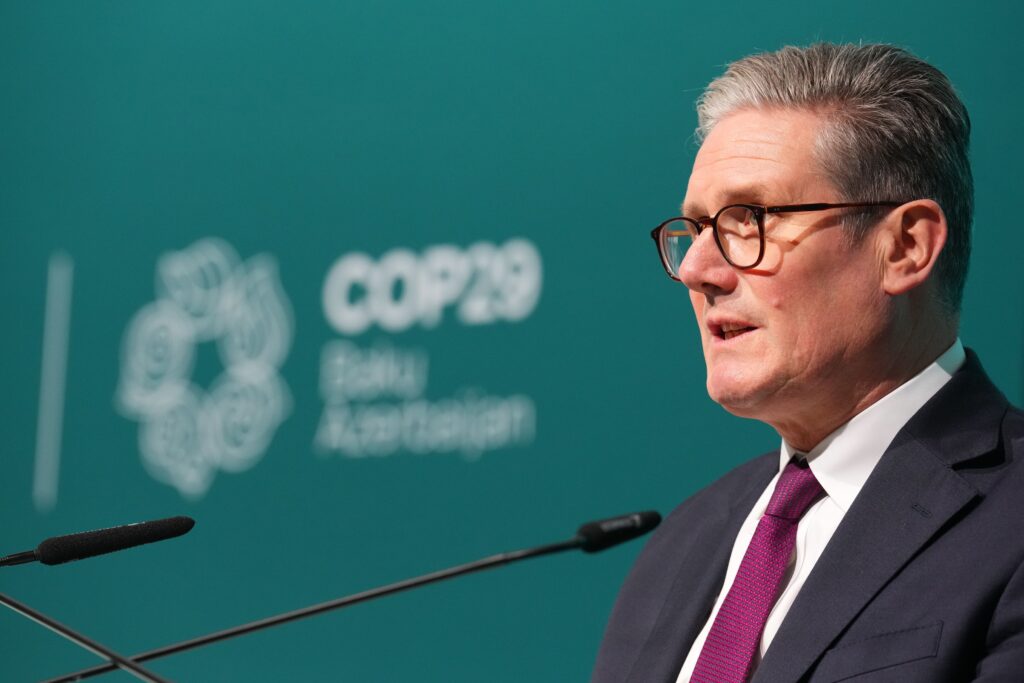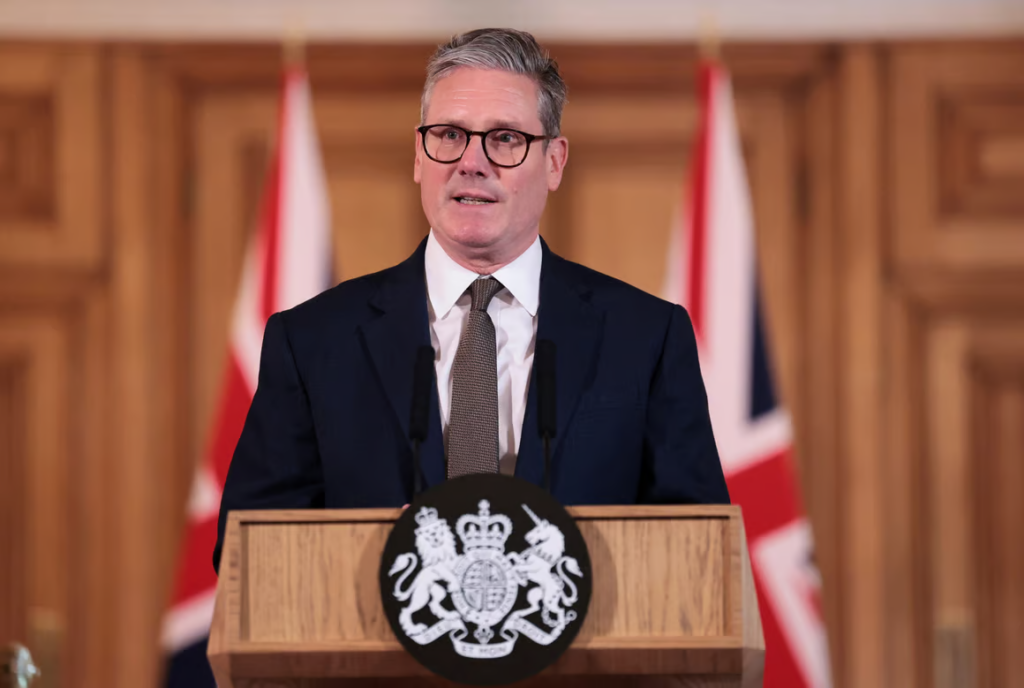UK Prime Minister Starmer Commits to Cutting Emissions by 81% by 2035 at COP29

- The UK PM Starmer sets a bold 2035 target to reduce emissions by at least 81% and champions international collaboration for climate action.
- Prime Minister Keir Starmer commits to reinforcing the UK’s position as a global leader in clean energy, emphasizing economic growth and national security.
- New initiatives, including a £1 billion offshore wind contract and a pioneering financial mechanism, highlight the UK’s push for green energy and private investment.
Prime Minister Keir Starmer, speaking at COP29 in Baku, Azerbaijan, declared the UK’s intensified commitment to lead in the global clean energy transition. “Our mission to make Britain a clean energy superpower will fire up our industrial heartlands and break down barriers to growth in our hard-working towns and cities,” Starmer stated. He underscored that addressing climate challenges is vital to national and global security.

UK’s Clean Energy Boost
To strengthen energy security and drive economic growth, the UK introduced the Clean Industry Bonus, incentivizing offshore wind developers to invest in British industrial regions. The bonus, starting at £27 million per gigawatt, is designed to attract substantial private investment, supporting sustainable infrastructure in regions such as Scotland, Wales, and the North East.
ScottishPower’s significant step—a £1 billion contract with Siemens Gamesa for the East Anglia TWO offshore wind farm—reflects this commitment. This project alone is set to generate power for nearly one million homes and will bolster employment in Humberside, creating over 1,300 local jobs.
Keith Anderson, CEO of ScottishPower, remarked,
“Today is tangible proof of the importance of Britain’s Clean Power Mission – our East Anglia projects are delivering UK jobs, UK supply chain contracts, and UK green energy.”

Advancing Clean Energy Innovation
Further emphasizing the UK’s leadership, the government launched the CIF Capital Market Mechanism on the London Stock Exchange. This initiative is poised to mobilize up to $75 billion in climate finance for developing nations over the next decade.
Darren Davidson, VP for Siemens Energy, highlighted the UK’s pioneering role:
“The UK is the first leading industrial country to simultaneously phase out coal power and be a leader in offshore wind. If we’re to achieve our net zero targets, it’s mission critical this momentum is maintained.”

The government also showcased progress with measures such as the lifting of the ban on onshore wind in England, record renewable energy projects, and investments in green hydrogen and carbon capture technologies.
Global Collaboration and Future Goals
Prime Minister Starmer stressed the need for international cooperation. “By acting decisively and early, the UK has an opportunity to lead the world in the industries of the future,” he noted, urging other nations to commit to ambitious climate targets. He announced that the UK’s 2035 target aims to cut greenhouse gas emissions by at least 81% from 1990 levels, aligning climate action with economic growth.
Starmer concluded with a call for joint action, stating, “We are a key partner for countries, for investors, and for businesses…to deliver for Britain and ensure a cleaner, safer, and more prosperous future for all.”
Conclusion
The UK’s announcements at COP29 reinforce its role as a global leader in clean energy, combining investment in innovative projects, strategic partnerships, and a clear path toward substantial emissions reduction. This approach not only strengthens energy resilience but also supports economic stability and job creation, ensuring a prosperous, sustainable future.












